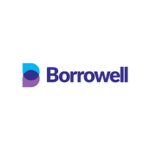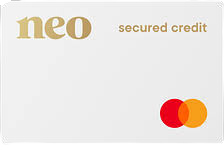The Ultimate Guide to Credit Building Loans in Canada
By Arthur Dubois | Published on 26 Sep 2023

If you’re looking to build up your credit history or repair a less-than-stellar credit score, credit building loans can be a valuable tool. In Canada, these loans are specifically designed to help individuals establish or improve their creditworthiness. In this ultimate guide, we’ll explore everything you need to know about credit building loans in Canada.
What are Credit Building Loans?
Credit building loans are financial tools designed to help individuals establish or improve their credit history and score. These loans are particularly beneficial for individuals with limited or poor credit histories, as they offer a structured path to demonstrate responsible borrowing behavior to creditors.
Unlike traditional loans, credit building loans often involve a unique mechanism. Instead of receiving the loan funds upfront, borrowers typically make regular payments into a locked savings account. These payments are reported to credit bureaus, reflecting positively on the borrower’s credit report. Once the loan term is completed, the borrower gains access to the accumulated savings.
The key to successfully utilizing credit building loans is making consistent, on-time payments. This showcases responsible financial behavior and gradually boosts the borrower’s creditworthiness. As credit scores improve, individuals can access better financial opportunities, including lower interest rates on future loans and increased approval odds for credit cards and mortgages. In essence, credit building loans serve as a stepping stone towards financial stability and improved access to credit.
However, it’s important to note that not all credit building loans are the same. These loans come in various forms, such as secured and unsecured loans. Moving on, we’ll take a closer look at the differences between secured and unsecured loans, and explore the best providers for each type of loan.
Secured Credit Building Loans
A secured credit building loan is a type of loan that requires collateral to secure the loan amount. Collateral can come in the form of a savings account or a certificate of deposit. By providing collateral, borrowers are giving the lender a sense of security in case they default on the loan.
One of the advantages of secured credit building loans is that they often come with lower interest rates compared to unsecured loans. This is because the collateral reduces the risk for the lender. Additionally, secured loans may offer higher borrowing limits, allowing individuals to access larger amounts of credit. With that being said, let’s take a look at some of the best providers of secured credit building loans in Canada.
Borrowell Credit Builder

Borrowell’s Credit Builder is a game-changer for Canadians with bad credit scores who aspire to enhance their financial standing. Designed to cater to the needs of individuals aiming to build their credit history and diversify their credit mix, this innovative product offers a clear path to financial growth.
The Credit Builder program offers flexibility with three different tiers – $10, $30, and $50 per month, allowing users to select a plan that aligns with their budget and financial goals. Over a 36-month period, users make monthly payments and can then access their savings (minus fees) at the end of the term, providing a financial cushion.
What truly sets Borrowell’s Credit Builder apart is its commitment to helping users improve their credit scores responsibly. Borrowell reports payment statuses to Equifax, and each on-time payment contributes positively to one’s credit history. Remarkably, this opportunity comes without the hassle of a hard credit check during the application process, and users can cancel anytime without incurring financial penalties. However, it’s important to note that Borrowell’s Credit Builder is not available in Quebec, Saskatchewan, and New Brunswick
KOHO Credit Building Line of Credit

KOHO’s Credit Building feature offers an invaluable solution for Canadians looking to enhance their credit scores effortlessly and affordably. This innovative feature sets itself apart by charging no interest, requiring no cumbersome application process, and ensuring guaranteed approval, making it an inclusive and accessible credit-building tool for all.
The primary offering consists of two options: an unsecured line of credit and a secured line of credit. With the unsecured line of credit, you can easily borrow an amount of money, repay it punctually, and KOHO diligently reports these timely payments to Equifax. This transparent process allows you to establish a positive payment history, a fundamental factor in credit score improvement.
Alternatively, the secured line of credit permits individuals to deposit their own money which they can withdraw, ranging from $30 to $500, and subsequently repay it on time. KOHO then reports these on-time payments to Equifax, further solidifying your credit history.
KOHO’s Credit Building feature is available as an optional addition to one of KOHO’s subscription plans. When combined with KOHO’s Easy plan, Credit Building costs $10 per month. However, people who are subscribed to KOHO’s Essential or Extra plan receive a 30% discount, and pay only $7 per month. Furthermore, you can receive a 50% discount on Credit Building when subscribing to KOHO’s Everything plan, bringing down the cost to a mere $5 per month.
Neo Secured Credit Card

The Neo Secured Credit card stands out as one of the best secured credit cards in Canada. This financial tool offers Canadians a host of benefits that can aid individuals in their journey towards better credit health.
First and foremost, Neo Secured Credit card offers guaranteed approval, which means that regardless of your credit history, you’re virtually assured of being approved for the card. This accessibility is invaluable for those who have faced rejection from traditional credit card providers due to past financial missteps or for those who are new to Canada.
Furthermore, Neo Secured Credit card requires no hard credit check during the application process. This is a significant advantage as hard credit checks can temporarily lower your credit score. With Neo, you can apply without worrying about further damaging your credit.
One of the most compelling features of the Neo Secured Credit card is its free credit reporting. All you need to do is pay with your card, and Neo will automatically report your history to TransUnion at no additional cost.
In addition to these benefits, the Neo Secured Credit card doesn’t burden cardholders with monthly or annual fees. This affordability allows individuals to focus on improving their financial standing without incurring unnecessary costs.
The cherry on top is the cashback program, offering rewards ranging from 0.5% to 15%. This means that not only can you rebuild your credit, but you can also earn money back on your everyday purchases. With a guaranteed minimum monthly cashback of 0.5%, it’s a win-win for those striving to get back on track financially.
Unsecured Credit Building Loans
Unlike secured credit building loans, unsecured credit building loans do not require collateral. These loans are typically offered to individuals with slightly better credit scores or those who do not have assets to secure the loan.
While unsecured credit building loans may have higher interest rates compared to secured loans, they still serve as a valuable tool for building credit. By obtaining an unsecured loan and making timely payments, individuals can demonstrate their creditworthiness and establish a positive credit history.
For individuals who are just starting to build their credit, unsecured credit building loans can be a stepping stone towards accessing other credit products in the future. As borrowers successfully manage their unsecured loans, they may become eligible for higher credit limits and better loan terms. If an unsecured credit building loan sounds appealing to you, then it’s worth exploring the services offered by Nyble.
Nyble

Nyble is an enticing option for Canadians looking to bolster their credit history. This innovative financial service offers an unsecured line of credit, removing the need for collateral. What sets Nyble apart is its swift and seamless sign-up process, taking just minutes to complete. Canadians can securely link their primary bank accounts, receiving instant approval without undergoing a traditional credit check. Instead, Nyble evaluates your income to determine how much your line of credit will be.
Once approved, users gain access to a flexible line of credit ranging from $50 to $150, all with the perk of 0% interest fees. The true brilliance of Nyble, however, lies in its credit-building capabilities. Each time you responsibly repay your credit line, Nyble diligently reports this activity to the credit bureau, steadily enhancing your credit history.
Nyble also offers a generous 14-day free trial period, allowing users to explore the platform risk-free. After this trial period, the cost is a reasonable $7.99 per month to maintain your open line of credit. Importantly, Nyble stands out with its no late fees policy. Plus, their proprietary technology ensures seamless repayment processing, preventing overdrafts even if your account lacks sufficient funds.
Reasons to Get a Credit Building Loan
When it comes to managing your finances, credit building loans can be a game-changer. Not only do they provide you with the necessary funds to meet your financial needs, but they also offer a host of benefits that can help you improve your credit score and secure better loan terms in the future. Let’s take a closer look.
Improving Credit Score
One of the most significant benefits of credit building loans is the ability to improve your credit score. By consistently making on-time payments, you demonstrate to lenders that you are reliable and capable of managing credit responsibly. This positive payment history is reported to credit bureaus, which in turn, can boost your credit score over time.
As your credit score improves, you become a more attractive borrower to lenders. This means that when you apply for future loans, such as a mortgage or a car loan, you are more likely to be approved and offered better interest rates. A higher credit score can also make it easier for you to qualify for credit cards with better rewards and perks.
Access to Better Loan Terms in the Future
Once you have successfully built a good credit score through a credit building loan, you’ll have access to better loan terms in the future. Lenders will view you as a low-risk borrower, potentially offering lower interest rates, higher loan amounts, and more favorable repayment terms.
With improved loan terms, you can save a significant amount of money over the life of the loan. Lower interest rates mean lower monthly payments, allowing you to allocate more funds towards other financial goals or expenses. Additionally, having access to higher loan amounts can give you the flexibility to make larger purchases or investments that can positively impact your financial well-being.
Moreover, credit building loans can also help you establish a positive payment history, which is crucial for building a solid credit profile. By consistently making payments on time, you demonstrate financial responsibility and reliability to future lenders. This can be particularly beneficial if you have limited credit history or have had past credit issues.
The Process of Acquiring a Credit Building Loan
Acquiring a credit building loan in Canada can be a beneficial step towards improving your credit history. These loans are specifically designed for individuals with limited or damaged credit histories, making them more accessible than traditional loans. However, it’s important to meet certain eligibility criteria and responsibly manage the loan for success, so let’s take a look at the specifics.
Eligibility Criteria for Credit Building Loans
Before applying for a credit building loan, you’ll need to ensure you meet the eligibility criteria set by lenders. While specific requirements may vary among lenders, there are common factors considered:
- Legal age of majority in your province or territory: To be eligible for a credit building loan, you must be of legal age in your province or territory (usually 18 to 19 years old).
- Canadian citizenship or permanent residency: You will need to be a Canadian citizen or a permanent resident to apply for credit building loans.
- Valid identification: To prove that you are a Canadian citizen or permanent resident, you will need to provide valid identification documents to verify your identity. In some cases, you also need a valid social insurance number.
- Credit history assessment: While credit building loans are designed for individuals with limited or damaged credit histories, lenders may still assess your credit history to determine your creditworthiness by means of a soft credit check that does not impact your credit score.
Meeting these eligibility criteria is essential when seeking a credit building loan. It serves as evidence to lenders that you meet the requirements for responsibly handling the loan. Therefore, if you meet the criteria for the specific service that you’re interested in, you can proceed down below and learn how to initiate the application process.
How to Apply for a Credit Building Loan & Increase Your Credit Score
When applying for a credit building loan, it’s important to follow a few steps to increase your chances of success:
1. Gather required documents
Before applying, gather all the necessary documents. In most cases, this typically means proof of identification only. However, some credit building loan providers may require other information like your social insurance number. Having these documents ready will streamline the application process.
2. Submit your application
Complete the lender’s application form accurately and provide all the requested information. Double-check your application to ensure there are no errors or missing details. After submitting your application, the lender will review it and assess your information. This process may take some time, so it’s important to be patient.
4. Make regular payments
Once you have the loan, it’s crucial to make timely monthly payments. Timely repayments on credit-building loans demonstrate responsible credit management and can lead to a gradual increase in your credit score, paving the way for more favorable loan terms and interest rates in the future.
5. Monitor your credit score
Keep an eye on your credit report and score to track your progress. Regularly reviewing your credit score allows you to observe the effects of the credit-building loan and enables early identification and rectification of any inaccuracies or discrepancies. Using apps like Borrowell and ClearScore can be a great way to monitor your credit score for free.
The Bottom Line
Credit building loans in Canada can be an effective tool for individuals looking to establish or improve their credit history. By understanding the different types of credit building loans, knowing the application process, and being aware of the benefits and risks involved, you can make informed decisions and take steps towards building a stronger credit profile. Remember, responsible borrowing and management are key to unlocking the full potential of credit building loans.
